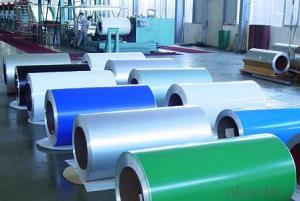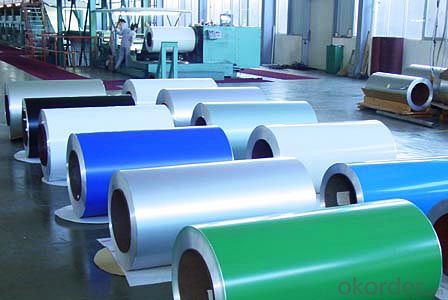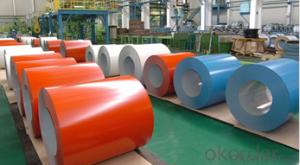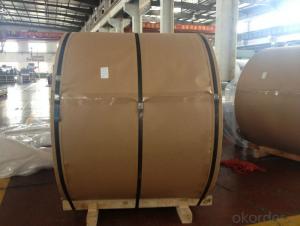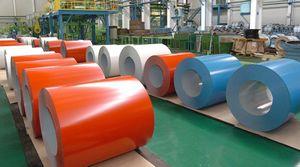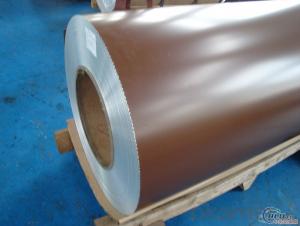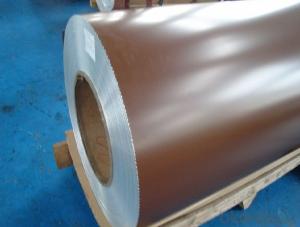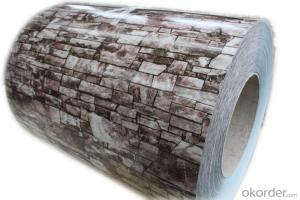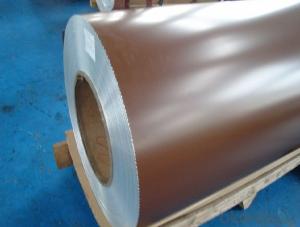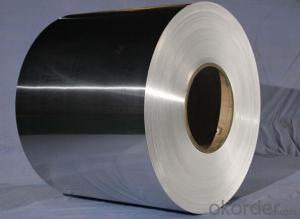Customized 3003 Aluminum Coil with Aluminium Power Coating and PVDF Dupont Paint
- Loading Port:
- Shanghai
- Payment Terms:
- TT OR LC
- Min Order Qty:
- 5 m.t.
- Supply Capability:
- 2000 m.t./month
OKorder Service Pledge
OKorder Financial Service
You Might Also Like
Specification
Structure of Aluminium Power Coating with PVDF Dupont Paint Description:
Coated aluminum coil/sheet are of a wide range of colors, which gives wonderful appearance no matter in residential and commercial constructions of great exhibition centers.
The coated aluminum coil/sheet have been widely used in the fields of construction and decoration( garage doors, ceiling etc.), electronic appliances, lighting decoration, air-condition air pipes, sandwich panels and drainages etc.
Main Features of the Aluminium Power Coating with PVDF Dupont Paint:
1) High flexibility
2) Impact resistance
3) Excellent weather-proof durability
4) Anti-ultraviolet
5) High erosion resist
Images of the Aluminium Power Coating with PVDF Dupont Paint:
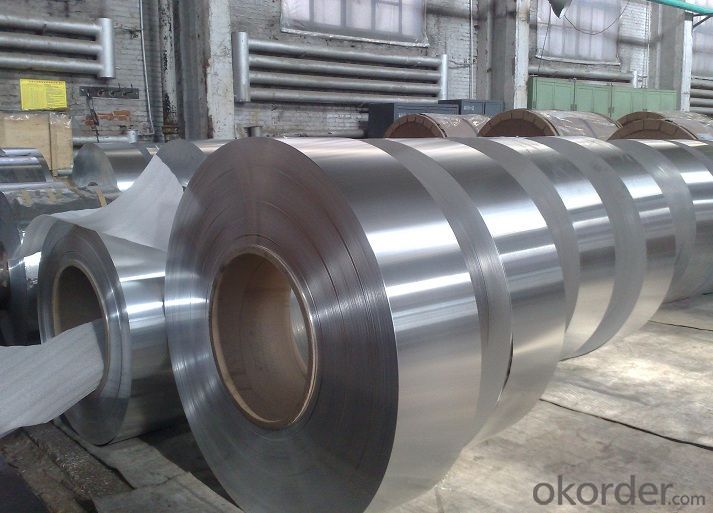
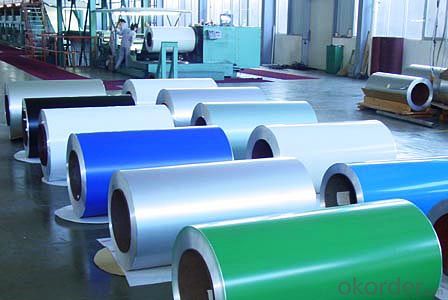
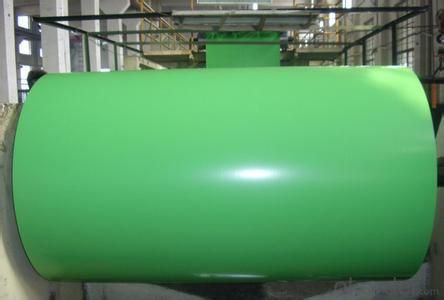
Aluminium Power Coating with PVDF Dupont Paint Specification:
FAQ:
a.What is monthly capacity
---CNBM is one stated own company and our monthly capacity is about 2000tons.
b. Now which countries do you export your goods?
---Now we export to South East Asia,Africa, North America,South America ect.
- Q: Can aluminum coils be used in food processing or packaging applications?
- Aluminum coils have proven to be highly effective in food processing and packaging. The food industry extensively utilizes aluminum due to its remarkable qualities such as resistance to corrosion, lightweight nature, and exceptional heat conductivity. This versatile material is commonly employed in food wrapping, the creation of food containers, and in the form of coils for various food processing needs. When it comes to packaging perishable food items like meat, dairy products, and beverages, aluminum coils are frequently employed. These coils can be effortlessly molded into diverse shapes and sizes to meet specific packaging requirements. The outstanding barrier properties of aluminum effectively shield the food from moisture, oxygen, and light, thereby ensuring extended shelf life and preserving food quality. In food processing, aluminum coils find application in a wide range of equipment including heat exchangers, evaporators, condensers, and refrigeration systems. The remarkable thermal conductivity of aluminum enables efficient heat transfer, making it suitable for tasks that necessitate precise temperature control. Furthermore, aluminum is completely non-toxic and does not react with food, making it an exceptionally safe and hygienic choice for food processing and packaging. Additionally, its recyclability renders it an environmentally friendly option. Overall, the widespread acceptance and utilization of aluminum coils in food processing and packaging is attributed to their versatility, durability, and ability to maintain the quality and safety of food products.
- Q: What are some normal everyday products made from aluminum that I can use to recycle?
- cool drink cans.
- Q: How do aluminum coils contribute to thermal insulation?
- Aluminum coils contribute to thermal insulation by acting as a barrier to prevent the transfer of heat. They are typically used in insulation systems to create a reflective surface that reflects radiant heat away from the desired area, thus reducing heat transfer and improving energy efficiency. Additionally, aluminum coils are lightweight, durable, and have good conductivity properties that help in maintaining stable temperatures and minimizing heat loss or gain.
- Q: Is it possible to utilize a press machine to bend aluminum coils?
- <p>Yes, you can use a press to bend aluminum coils. Presses are versatile machines capable of bending various materials, including aluminum. However, it's crucial to select the appropriate press type and size for the specific coil dimensions and desired bend. Additionally, ensure the press has the necessary tonnage to handle the bending force required for aluminum. Using the right dies and lubrication can also improve the bending process and prevent damage to the coils. Always follow safety guidelines and consult with equipment specifications to ensure the press is suitable for bending aluminum.</p>
- Q: What is the cost involved in the production of an aluminum coil?
- <p>The cost to produce an aluminum coil varies significantly based on several factors. These include the cost of raw materials, energy costs for melting and rolling, labor, and overhead expenses. Additionally, the price of aluminum on the commodities market directly impacts the cost. As of recent market trends, the cost can range from a few hundred to several thousand dollars per ton, depending on the specific alloy and thickness of the coil. It's essential to consider the current market prices for aluminum and the efficiency of the production process when calculating the cost to produce an aluminum coil.</p>
- Q: where's the best place to look for aluminum not cans
- TRY A LOCAL HARDWARE STORE
- Q: Can aluminum coils be used in electrical wiring applications?
- Yes, aluminum coils can be used in electrical wiring applications. Aluminum has been used as a conductor in electrical wiring for many years, especially in residential and commercial buildings. It is a lightweight and cost-effective alternative to copper. Aluminum coils are commonly used in applications such as power distribution, transformers, and motors. However, it is important to note that aluminum has different electrical and mechanical properties compared to copper, so proper installation techniques and connectors specifically designed for aluminum wiring should be used to ensure safety and efficiency.
- Q: Is it possible to use a welding process to join two pieces of aluminum coil?
- <p>Yes, you can weld two pieces of aluminum coil together, but it requires specific techniques and equipment. Aluminum welding is different from steel welding and requires a TIG (Tungsten Inert Gas) or MIG (Metal Inert Gas) welding process. It's crucial to use a clean, dry aluminum filler rod and maintain a clean, oxide-free surface on the aluminum. Additionally, a shielding gas like argon is necessary to protect the weld area from oxidation. Special precautions must be taken due to aluminum's high thermal conductivity and reactivity, so it's recommended to have experience or professional guidance when welding aluminum.</p>
- Q: What are the common fabrication techniques used for aluminum coils?
- The common fabrication techniques used for aluminum coils include rolling, annealing, slitting, and coating. Rolling is a primary fabrication technique that involves passing the aluminum through a series of rollers to reduce its thickness and achieve the desired shape. This process can be done using either hot rolling or cold rolling, depending on the specific requirements of the application. Hot rolling involves heating the aluminum to high temperatures, making it more malleable and easier to shape, while cold rolling is performed at room temperature. Annealing is another important technique used for aluminum coil fabrication. This process involves heating the aluminum to a specific temperature and then slowly cooling it down to enhance its mechanical properties. Annealing helps to relieve internal stresses, improve the aluminum's formability, and enhance its overall strength. Slitting is a technique used to cut wide aluminum coils into narrower strips. This process is typically performed using specialized machines that can slit the coils to the desired width. Slitting allows for more precise customization and can be used to produce coils of different widths to meet specific requirements. Coating is a common fabrication technique used to enhance the durability, corrosion resistance, and appearance of aluminum coils. Various coating methods, such as painting, anodizing, or powder coating, can be employed to provide a protective layer on the surface of the aluminum. This helps to prevent oxidation, improve weather resistance, and enhance aesthetic appeal. These fabrication techniques are commonly used in the aluminum industry to produce high-quality coils that can be further processed and utilized in various applications, including construction, automotive, aerospace, and electrical industries, among others.
- Q: hey, my dad and i are working on painting our front door and the current piece of aluminum in front of it wont go with the new color. it doesnt look like it can be changed out so we are wondering, other than spray paint, what can you put on aluminum to make it turn permanently black. my dad mentioned gun blue, but that only works on steel. thanks
- Dad is on the right track....maybe. There are blackeners for aluminum you can get from gunshops. Used to touch up scratched or worn black anodized finish on aluminum gun parts. Never used it in large areas. Best regards
Send your message to us
Customized 3003 Aluminum Coil with Aluminium Power Coating and PVDF Dupont Paint
- Loading Port:
- Shanghai
- Payment Terms:
- TT OR LC
- Min Order Qty:
- 5 m.t.
- Supply Capability:
- 2000 m.t./month
OKorder Service Pledge
OKorder Financial Service
Similar products
Hot products
Hot Searches
Related keywords
